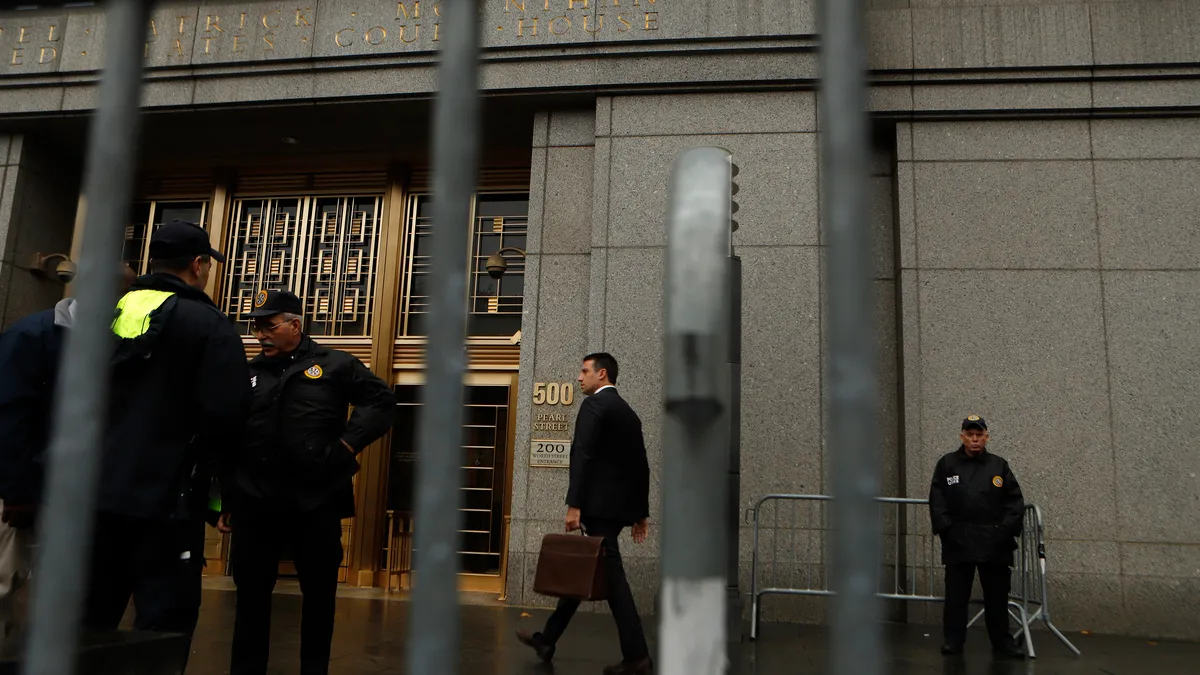The move by the Judicial Conference to limit forum shopping by requiring federal districts to randomly assign judges to cases with state or federal scope will likely only have a limited impact, critics say.
Although it’s a win to make it harder for plaintiffs to pick the judge they want, as long as ideologically aligned judges are concentrated at the circuit level, plaintiffs know they stand a good chance of getting a favorable ruling at the appellate level even if they lose in the lower court.
“It’s a … step in the right direction,” Jeremy Fogel, executive director of the Berkeley Judicial Center, told Bloomberg Law. But, he said, plaintiffs can still make choices at the circuit level.
Many of the challenges to Biden administration policies, for example, have been filed in district courts in the 5th Circuit, which encompasses Texas, Louisiana and Mississippi, where judges skew conservative. That means even if plaintiffs don’t get the results they want from a randomly assigned judge at the district level, they can count on a sympathetic hearing at the appellate level.
“People will still choose the venue by the particular circuit they’re in and the composition of a particular court as long as they can meet the jurisdictional requirements,” the publication summarized Fogel saying.
But that advantage could go away in an ideologically diverse venue, like the 9th Circuit, the largest in the United States. It encompasses liberal-leaning California and Hawaii but also conservative-leaning Idaho, Montana, Arizona and Alaska. It also includes the more ideologically mixed states of Nevada, Washington and Oregon.
Because of its liberal bias, California is the go-to state for plaintiffs filing challenges to federal immigration policies. “There’s a better chance of the case being assigned to a judge who is sympathetic to arguments against the government,” The New York Times reported.
But if the case goes to appeal, that advantage likely goes away, especially in cases heard en banc, where the panel consists of 11 judges from throughout the circuit randomly selected.
Administrative action
The Judicial Conference put forum shopping in the spotlight March 12 when it passed a policy change requiring all federal districts to use a random process for selecting judges in civil cases that would have state-wide or federal impact, “whether by declaratory judgment and/or any form of injunctive relief.”
The Conference is the administrative arm of the federal judiciary system and it’s been under the gun to do something to curb efforts by plaintiffs to pick judges they think will be sympathetic to their case.
Among other things, U.S. Supreme Court Chief Justice John Roberts in 2021 called out forum shopping in the context of patent law and a group of senators in 2022 introduced legislation to curb the practice.
“No single judge should have the power to make sweeping decisions that could harm millions of Americans,” Sen. Ron Wyden, D-Ore., said in announcing the bill. “If a decision will have national consequences, it should be heard by a panel of judges.”
The Department of Justice has also issued an analysis that found no legal reason not to allow the random selection of judges.
Scope of problem
Already many districts use random assignments but the practice isn’t universal. In some districts, only judges sitting in the same division in which the case is filed are assigned. That leaves the door open for plaintiffs to essentially pick their judge if the division has only a single judge, which is the case in some smaller jurisdictions. With only one judge, any case that gets filed in that division is all but assured to go before that judge.
The poster child for what critics call abuse of the system is a 2022 case brought by activists challenging the Food and Drug Administration’s approval of mifepristone, an abortion drug.
The plaintiffs selected the federal court in Amarillo, Texas, which has only one judge, Matthew Kacsmaryk, an outspoken abortion critic, and they received the outcome they wanted. In his ruling, Kacsmaryk sided with plaintiffs that the drug was unsafe, invalidating the FDA’s approval of the drug, even though it’s been approved for 23 years. The drug remains available while the case is pending appeal before the U.S Supreme Court.
“If you’re the Alliance Defending Freedom” — the legal group representing plaintiffs in the mifepristone case — “you’re going to want someone like [Kacsmaryk] because your odds are going to be better,” Mary Ziegler, a law professor at the University of California, Davis, told CNBC last year.
Even with the policy change by the Judicial Conference, the lion’s share of cases will continue to go to assigned judges in divisions that still use that process, because the random selection requirement only applies to cases that would impose a ban, or a mandate, at the state or federal level. That means most corporate cases, like those involving a patent fight or a bankruptcy filing, could still be assigned to a friendly judge.
Elon Musk taking steps in February to move Tesla’s incorporation from Delaware to business-friendly Texas is a case in point. His beef is with state court — the Chancery Court — but it illustrates the dynamic.
But some districts have already taken action on their own and more could follow. In 2022, the Southern District of New York and the Eastern District of Virginia implemented random judge selection in bankruptcy cases to end what they saw as abuse of their courts.
SDNY Judge Cecelia Morris said at the time she hopes “the adoption of this system will result in a more balanced utilization of judicial resources,” a Mayer Brown analysis of the two districts’ actions said.



















